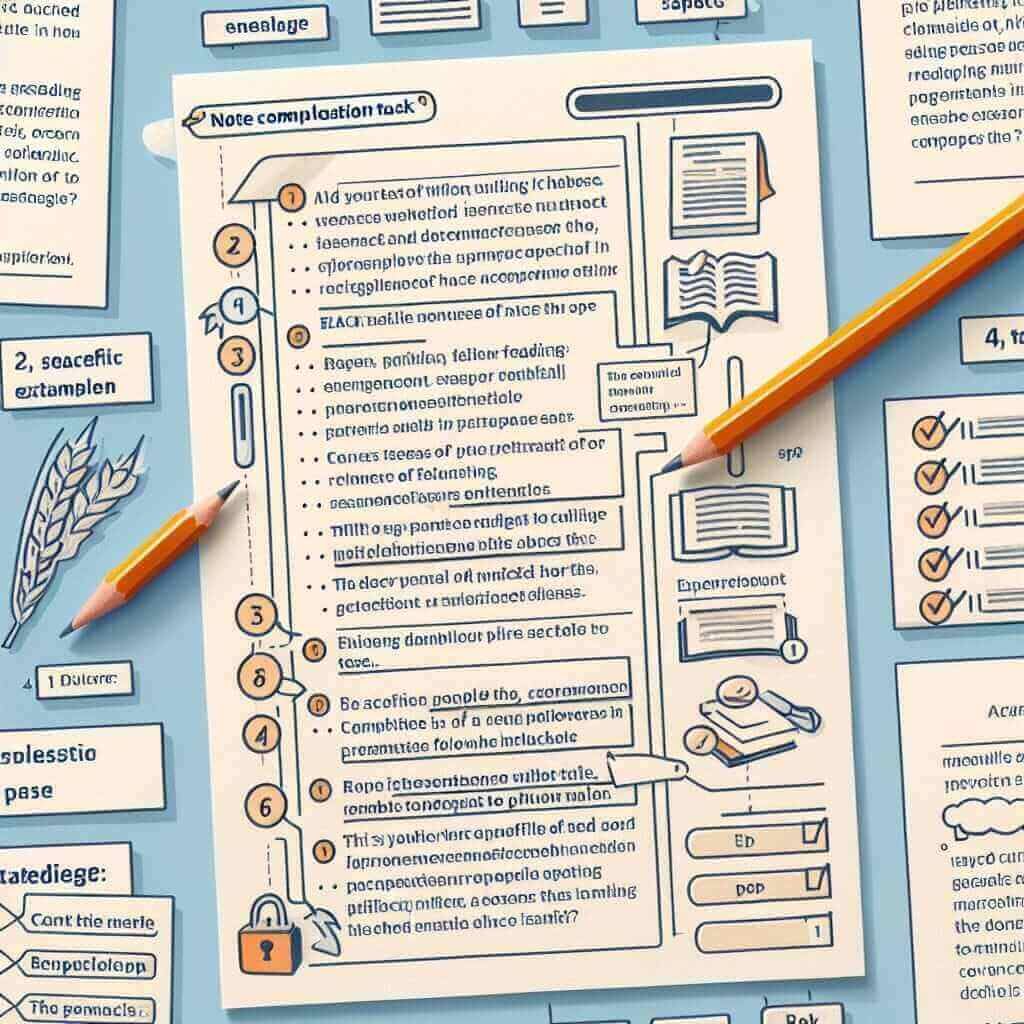Note completion questions are a common question type in the IELTS Reading test. They assess your ability to locate specific information within a text and understand it in context. While seemingly straightforward, these questions can be tricky if you don’t approach them strategically. This article provides a detailed guide on how to effectively tackle note completion questions and maximize your score.
Understanding Note Completion Questions
In this question type, you are given a set of notes summarizing the key information from one or more paragraphs in the reading passage. The notes will have some gaps that you need to fill in using words taken directly from the text. The instructions will specify the maximum number of words you can use for each gap, usually ranging from one to three.
Strategies for Success
1. Carefully Read the Instructions and Notes
Before you dive into the reading passage, take your time to understand the instructions and the notes provided. Pay attention to:
- Number of words: Note the word limit for each gap.
- Keywords: Identify keywords and phrases in the notes that will help you locate the relevant information in the passage.
- Overall meaning: Try to grasp the overall meaning and structure of the notes to anticipate the kind of information you need to find.
2. Skim the Passage for Keywords
Using the keywords you identified in the notes, skim the passage quickly to locate the relevant sections containing the answers. Don’t try to understand every single word at this stage; focus on finding the target information.
3. Read the Relevant Section Carefully
Once you’ve found the relevant section, read it carefully to fully understand the context and identify the specific words or phrases that accurately complete the notes.
4. Ensure Grammatical and Logical Accuracy
After selecting your answers, ensure that they fit grammatically and logically within the notes. The completed notes should make sense as coherent sentences.
5. Pay Attention to Synonyms and Paraphrasing
The IELTS Reading test often uses synonyms and paraphrases to test your vocabulary and comprehension skills. Be prepared to identify words or phrases in the passage that have similar meanings to those in the notes.
Examples and Analysis
Let’s illustrate these strategies with an example from an official IELTS Reading passage:
Passage Extract:
“The use of renewable energy sources is becoming increasingly important as the world seeks to reduce its reliance on fossil fuels. Solar power, in particular, has emerged as a leading source of clean energy. Solar panels convert sunlight directly into electricity, providing a sustainable and environmentally friendly alternative to traditional power generation methods.”
Note Completion Task:
Complete the notes below using NO MORE THAN THREE WORDS from the passage.
Renewable Energy Sources
- The world is looking for ways to decrease its dependence on ___.
- ___ is becoming a major source of clean energy.
Answers:
- fossil fuels
- Solar power
Analysis:
- The keywords “renewable energy sources” and “reliance on” in the notes help us locate the first sentence of the passage.
- We can easily identify “fossil fuels” as the answer to the first gap.
- The second sentence mentions “Solar power” as a “leading source of clean energy,” making it the appropriate answer for the second gap.

Common Mistakes to Avoid
- Not reading the instructions carefully: This can lead to using the wrong number of words or misunderstanding the task requirements.
- Copying entire sentences: Remember to only use the required number of words from the passage.
- Ignoring grammar and logic: Ensure your answers fit grammatically and make sense in the context of the notes.
- Panicking if you can’t find an answer: If you’re struggling, move on to other questions and come back to it later.
Practice Makes Perfect
To improve your performance in note completion questions, practice regularly with past IELTS Reading papers and sample tests. This will help you familiarize yourself with the question format, develop effective skimming and scanning skills, and enhance your ability to locate specific information quickly and accurately.
Conclusion
Mastering note completion questions in the IELTS Reading test requires a combination of strategic reading skills, vocabulary knowledge, and attention to detail. By following the tips and strategies outlined in this guide and practicing regularly, you can boost your confidence and improve your chances of achieving a high score on your IELTS exam. Remember to stay calm, focus on understanding the context, and double-check your answers for accuracy and clarity.